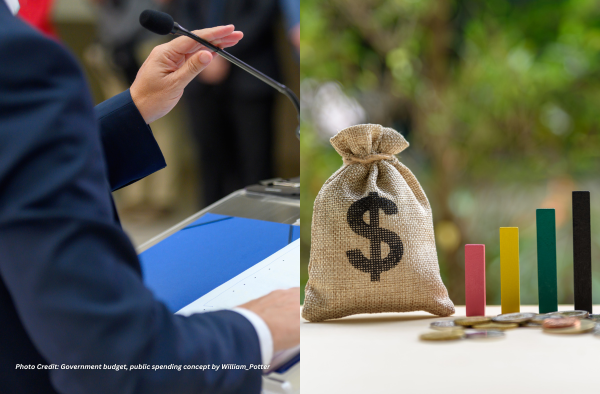Coalition challenges Labor’s green budget
Share

Shortly after presenting its third budget, Labor’s ambitious “Made in Australia” plan has been called into question.
Less than a day after Treasurer Jim Chalmers unveiled his budget, Labor’s multibillion-dollar Future Made in Australia package is already in question since the Coalition has indicated that it would reject a crucial component. Over the next ten years, the government plans to invest $23 billion to support local industry and hasten the transition to net zero.
However, it’s the $13.7 billion in production tax breaks for processed key minerals and renewable hydrogen that will be crucial. Labor will face the greatest challenges in achieving this. The Coalition needs to pass legislation to implement its strategy, but so far, it is not happy with this.
According to Shadow Treasurer Angus Taylor, the Coalition will instead attempt to boost the manufacturing and resource sectors via alternate channels, claiming that the production tax credits would only result in “billions for billionaires.”
“Frankly, this is not a good use of taxpayer money. This is not how you get manufacturing and resource sectors really firing,” he told ABC Radio.
“Their pathway is government subsidies. Our pathway is fundamental. This is the most competitive sector, one of the strongest sectors in Australia.
“To say the only way it’s going to survive is through government subsidies? You know this is an extraordinary claim to make.”
The Business Council of Australia has cautioned that the success of the Future Made in Australia initiative depends on bipartisanship.
“It will increase our competitiveness,” chief executive Bran Black told ABC Radio.
“We need to see this as the start of some momentum towards genuine change that drives improved fundamentals for investment.”
Taylor said that the real issue should be whether there would be bipartisanship or not, since he didn’t think Labor had provided solid ideas.
During his media tour after the budget on Wednesday morning, Chalmers sought to reassure taxpayers that the $13.7 billion in tax rebates would not be squandered.
“Those credits will reward businesses that produce the energy of the future to help the world get to global net zero and to create good, secure, well-paid jobs in our local communities,” he told ABC News.
“So by using the tax system by paying on scale and success, we’re making sure that money is not wasted.”
Chalmers saw Australia’s entry into the global net zero transition as a “golden opportunity.” In addition to the tax incentives, the government would invest an additional $1.3 billion for a second phase of the hydrogen headstart programme to support “early-mover renewable hydrogen projects.” Opposition Leader Peter Dutton said that funding for these projects didn’t have to come from taxpayers.
“People like Clive Palmer and Twiggy Forrest are great business people, and they know how to milk a weak government, and that’s what they’re doing at the moment,” Dutton said.
“I think we’d be better off providing for arrangements and an environment that is conducive to business investment.
“Those projects should be able to stand alone, and we support them—but not with taxpayers’ money.”
Independent Wentworth MP Allegra Spender expressed her openness to the Future Made in Australia concept if “it is done right.”
“I’m open to the Future Made in Australia; I’m looking really carefully at the details,” she told Sky News.
“But the challenge for me will be that the implementation is done right, making sure that there’s a real arm’s length between the decisions the minister is making.
“And making sure there are real guardrails around it. This is the work I’ll be doing and interrogating as it comes forward.”
The budget also allocated a new $1.7 billion innovation fund for Australia’s future, focusing on high-priority industries like batteries, low-carbon liquid fuels, and green metals. In addition, the government had previously said that it would lend Silicon Valley startup PsiQuantum $466 million to further the development of a quantum computer.
Public Spectrum is the first knowledge-sharing platform in Australia to embrace the entire public sector. This website is a platform where you can connect, collaborate, empower, inspire, and upskill with public sector professionals.










Today’s Pick
11th Annual Aus Goverment Data Summit
April 1, 2025
7th Annual NZ Government Data Summit
May 7, 2025
3rd Public Sector Comms Week
May 14, 2025
Subscribe
We send emails,
but we do not spam
Join our mailing list to be on the front lines of healthcare , get exclusive content, and promos.
AI appointment Australia Australian boost boosts business businesses covid-19 cyber cyber attack cybersecurity cyber security data data breach data management defence Digital employment enhance enhances fraud funding governance government grants infrastructure Innovation Lockdown management new zealand NSW NZ online privacy public Public Sector queensland renewable energy scams security Social Media Technology telecommunications victoria
-

Understanding and building your digital strategy
Digital Government, Opinion
-

Featured Leader: Jamie Morse on multi-channel strategies for communication
Communications, Featured Leader
-

Featured Leader: Tegan Tembe of NSW Treasury on creating solid planning strategies and processes
Featured Leader
-

Wirraka Maya Health Service improves patient care with My Health Record
Learning
Show More-

Effects of ineffective communication in the workplace
Communications, Personal Development
-

7 ways you can enhance your personal development skills
News, Personal Development
-

5 advantages of working in the public sector
News, Personal Development, Professional Development
-

7 causes of communication issues in the workplace
Communications, News, Personal Development
Show MoreLast Viewed